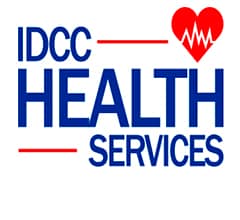What Are Some Signs of Poor Digestion in Children?
Poor digestion in children is a common issue, but parents often fail to identify and treat it in time. In “What Are Some Signs of Poor Digestion in Children?” you’ll find key information to detect these problems in your child and tips to address them before they become more serious.
TL;DR:
Poor digestion in children can lead to nutritional deficiencies, discomfort, and dehydration. Common signs include frequent diarrhea, bloating, gas, abdominal pain, and irritability. Key strategies for improvement include adjusting the child’s diet, offering smaller meals, ensuring proper hydration, and seeking medical advice if symptoms persist. Early detection and care are essential for healthy growth and development.
Consult a gastroenterologist in Brooklyn for digestion issues

How Poor Digestion Affects Your Child’s Health
Poor digestion can cause mild discomfort and more serious health problems if left untreated. The digestive system is responsible for processing food and absorbing nutrients, so poor digestion can prevent the body from getting what it needs for growth and development.
Main consequences of poor digestion:
- Nutritional deficiencies: The body doesn’t absorb essential vitamins and minerals properly, affecting growth.
- Physical discomfort: Gas, bloating, and abdominal pain are common.
- Dehydration: Frequent diarrhea can lead to a dangerous loss of fluids.
Learn more about do you have to have a pediatrician
Common Signs of Poor Digestion in Children
Signs of poor digestion can vary, but parents should be on the lookout for certain symptoms that indicate digestive issues in children:
- Frequent diarrhea: Especially if stools are liquid and explosive.
- Bloating and abdominal pain: Usually appears after meals.
- Excessive gas: Flatulence may indicate undigested carbohydrates.
- Irritability: In babies, this can show up as continuous crying after eating or trouble sleeping.
Learn more about do i need a referral for speech therapy
Effective Strategies to Improve Digestion
If you suspect your child has digestive issues, these strategies may help improve digestion:
Adjust Their Diet
Reduce or eliminate foods that may cause intolerances, like lactose or fructose. Ensure their diet includes enough fiber from fruits, vegetables, and grains.
Smaller, More Frequent Meals
Offering smaller portions throughout the day can relieve digestive overload.
Keep Them Hydrated
Make sure your child drinks enough water to aid digestion and prevent dehydration.
Seek Medical Advice if Needed
If symptoms persist, see a pediatrician for a detailed evaluation.
Learn more about is speech therapy considered special education
Support Your Child’s Digestion for Healthy Growth
Maintaining healthy digestion in children is key to their proper development and overall well-being. Recognizing signs of poor digestion early, such as diarrhea, abdominal pain, and gas, allows for preventive or corrective action before it affects their nutrition.
A balanced diet, portion adjustments, and proper hydration are essential for improving digestive health. If problems continue, consulting a specialist is important to avoid further complications.
Frequently Asked Questions
- What are the symptoms of a weak digestive system?
Common symptoms include diarrhea, abdominal pain, bloating, flatulence, and lack of energy. - What causes poor digestion in children?
The most common causes include food intolerances (lactose, fructose), digestive infections, or an enzyme deficiency.
Key Takeaways:
- Impact of Poor Digestion on Children’s Health
- Can lead to nutritional deficiencies, physical discomfort, and dehydration.
- Affects growth and development due to poor nutrient absorption.
- Common Signs of Poor Digestion
- Frequent, watery, or explosive diarrhea.
- Bloating and abdominal pain, especially after meals.
- Excessive gas and flatulence.
- Irritability, especially in infants, shown through crying after feeding or sleep issues.
- Dietary Adjustments for Better Digestion
- Eliminate trigger foods (e.g., lactose, fructose).
- Ensure a fiber-rich diet from fruits, vegetables, and whole grains.
- Meal and Hydration Strategies
- Offer smaller, more frequent meals to reduce digestive strain.
- Maintain adequate hydration to support digestion and prevent dehydration.
- When to Seek Medical Help
- Persistent symptoms should be evaluated by a pediatrician for accurate diagnosis and treatment.
- Importance of Early Intervention
- Early recognition and management of digestive issues help prevent complications and support healthy growth.
- Possible Causes of Poor Digestion
- Include food intolerances, digestive infections, or enzyme deficiencies.
Sources:
Anales de Pediatría Continuada. (2014, May-June). Malabsorción de hidratos de carbono. Elsevier. https://www.elsevier.es/es-revista-anales-pediatria-continuada-51-articulo-malabsorcion-hidratos-carbono-S1696281814701787
